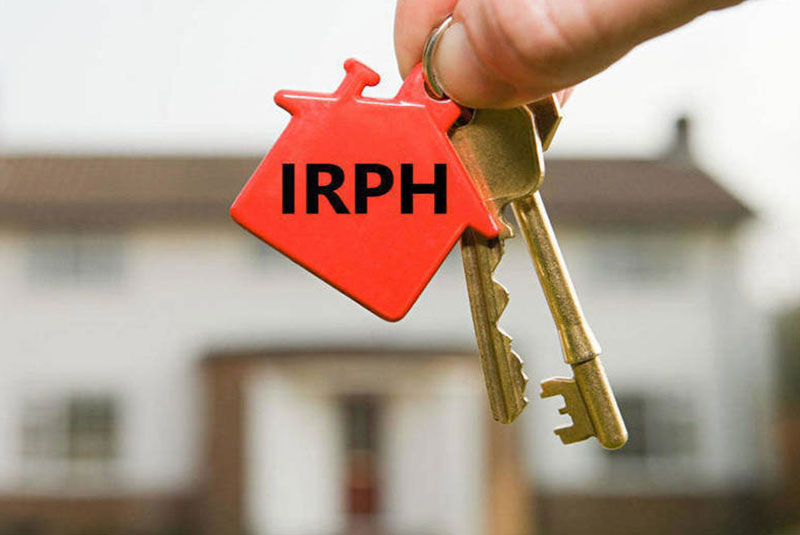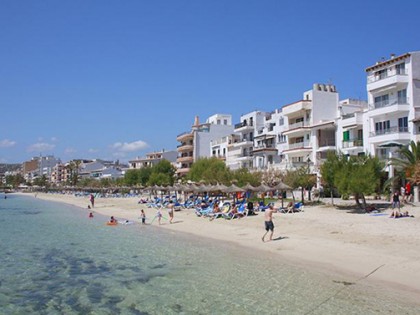What you need to know about IRPH
Home owners in Mallorca, Menorca and Ibiza might see themselves affected by one of the largest rulings of the year relating to banks, loans and a lot of interest. It’s all centred around the IRPH, but what exactly is the IRPH?
What is IRPH?
IRPH is the Mortgage Reference Index. It is an official index set by the Bank of Spain, and the second most used behind the Euribor Index. To calculate the IRPH, an average is made of the interest rates offered by various entities, including mortgage costs relating loans over three years old. Generally, the IRPH has always been higher than the Euribor Index. This type of interest is more beneficial to banks when it comes to selling a loan, and in the majority of cases it’s bad for customers. Mortgage payers can end up overpaying by up to €2,000 a year due to this.
What’s the problem with IRPH?
Using the IRPH with mortgages is legal, but the problem lies with banks and the procedure made by banks when offering mortgages to clients – what is doubted is the transparency of the banks when suggesting a mortgage interest be calculated using IRPH.
The clauses relating to the IRPH tax were considered “abusive”. This is the judgement made by the lawyer Maciej Szpunar after making a study over the course of several months as to whether the Spanish financial entities were transparent regarding regarding this interest index. This does not mean that the index is illegal, but the study undertaken demonstrates that the matter was not transparent as it should have been.
IRPH was very commonly used in 2005 and 2006, coinciding with the real estate “boom” and also a record breaking Euribor index, which reached beyond 5% during several months of this period. During this time IRPH was considered “less volatile” than the Euribor index. The database of Asufin calculates that more than a million Spanish mortgages might be affected.
An important, but non-binding decision
The decision made by the general attorney of the European Court of Justice is very important, but it isn’t binding to the judicial decision taken at the end of the year. The critique of the general attorney, which is this case is in the hands of Mr Szpunar, is highly valued by the ECJ and is considered impartial, and could influence the ruling that is to be made during the last trimestre of the year.
The ruling will greatly influence the final decision of the ECJ, as has happened with the vast majority of the opinions of the general attorney of the EU and it would be very peculiar to have a contradicting opinion within 2 to 3 months time. The decision will finally mark whether the banks were transparent, and whether it should compensate those affected by not having linked variable loans to Euribor.
There have been two main arguments against banking clauses: that they would be abusive for the consumer, and that the information provided is clear. The latter is the one that has the most gravitas – despite the danger to the client being clear when compared to other options such as the Euribor, it must be explicitly stated.
What risk is there for the banks
Due to the possible ruling against the banks, their risk reaches into the hundreds of millions, with the worst case scenario forecast by Goldman Sachs coming in at a whopping 44,000 million euros. Whilst other more conservative estimates reach figures close to 25,000 million euros.
The most vulnerable entities are Caixa Bank & Santander with a total of 24% of affected loans and mortgages. Kutxabank has 18%, Bankia and BBVA have 10% each, the now defunct Catalunya Caixa (merged with BBVA) and Grupo Caja Rural have 4% each, and Sabadell has 3%.
How to reclaim your IRPH
If a customer has this index used in their loan, and the ECJ has ruled against the banks, here is what you should do:
The process should be initiated by sending a letter to the bank requesting they rescind the clause due to it being abusive. The most common response will be that the bank will dispute this claim and take it to court. In the case of the claim going to court, the first thing you should do is to inform yourself of due procedure and find out about your options and possibilities.
Will loans with IRPH be changed to the Euribor index?
This should be the most likely possibility, but it will need to be analysed in depth to see whether the loans contract states an alternative index in the case of the dissolution of IRPH.
Will there be retroactivity?
All possibilities will be open if the IRPH is declared null – there could be no retroactivity to a possibly limitless retroactivity. The banks are currently announcing their high exposure as an indication of the enormous impact retroactivity may have on its clients. All in all, this is a very complex and interesting situation for home owners on Mallorca, Menorca and Ibiza, and all of Spain, with large consequences that will be felt throughout all of Spanish society.
Should you require any assistance or legal counsel concerning properties, purchases and sales on the islands of Mallorca, Menorca and Ibiza, please contact us at your convenience at info@mallorcasolicitors.com or by phone on the numbers listed on our contact page.









































































































